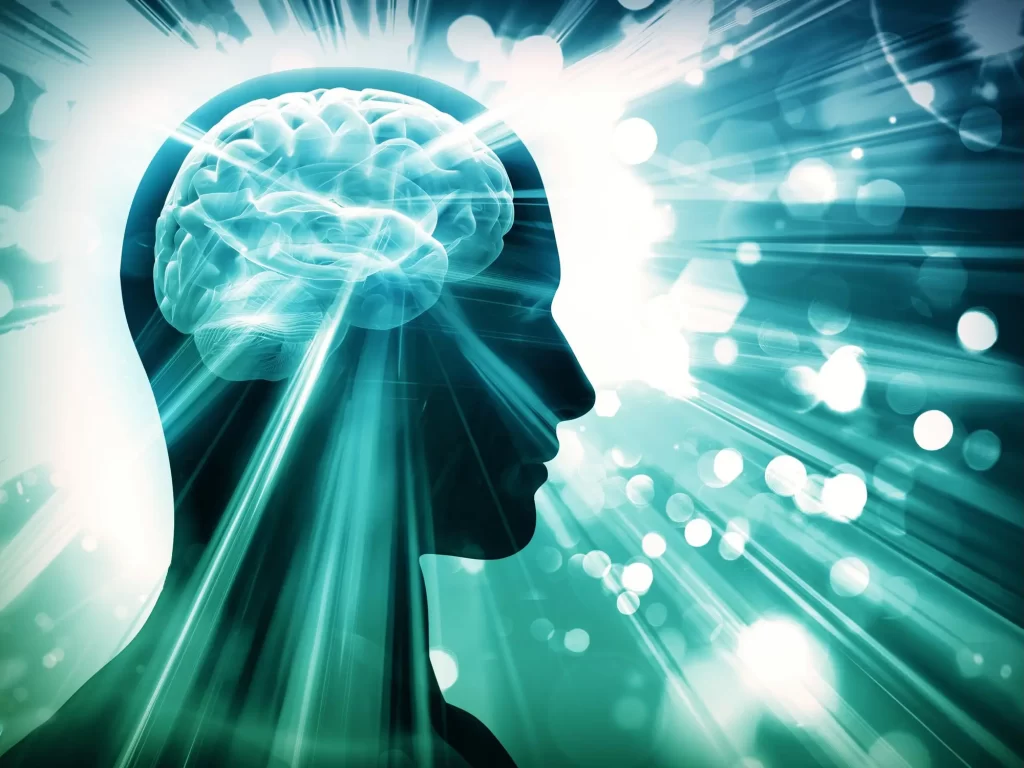Blog
CBD and Productivity: Examining the Relationship Between Cannabidiol and Energy Levels
In today’s fast-paced world, maintaining optimal energy levels and productivity is essential for achieving our goals and making the most of our day. While there are various factors that influence energy levels, the potential role of CBD (cannabidiol) in enhancing productivity has gained significant attention. In this article, we delve into the relationship between CBD and energy levels, exploring the scientific evidence and anecdotal experiences to shed light on the potential benefits and considerations of incorporating CBD into our daily routines.
Understanding CBD and Its Interaction with the Body
CBD, short for cannabidiol, is a fascinating compound derived from the hemp plant that has gained significant attention for its potential therapeutic properties. Unlike its counterpart THC, CBD is non-intoxicating, meaning it doesn’t produce the euphoric “high” typically associated with cannabis. To comprehend how CBD may influence our energy levels, it’s crucial to explore its interaction with the body.
CBD interacts with the endocannabinoid system (ECS), an intricate network of receptors and signaling molecules spread throughout our body. The ECS plays a vital role in maintaining balance and homeostasis in various physiological processes, including mood, sleep, appetite, immune response, and yes, even energy regulation.
The ECS consists of three core components: endocannabinoids (endogenous cannabinoids produced by our body), receptors (CB1 and CB2), and enzymes responsible for synthesizing and breaking down endocannabinoids. When we consume CBD, it interacts with these receptors, exerting its influence on the ECS.
CB1 receptors are primarily found in the brain and central nervous system, while CB2 receptors are more abundant in the immune system and peripheral tissues. The distribution of these receptors throughout the body helps explain the wide-ranging effects of CBD.
By modulating the ECS, CBD may impact our energy levels and overall well-being. While the exact mechanisms are still being studied, researchers speculate that CBD’s interaction with the ECS may contribute to regulating various factors that influence energy, such as mood, stress response, sleep, and inflammation.
CBD may influence serotonin receptors, which are involved in mood regulation and may play a role in energy balance. By modulating serotonin levels, CBD could potentially impact our overall mood and energy levels. Additionally, CBD’s potential anti-inflammatory properties may indirectly contribute to promoting energy by reducing discomfort and improving overall well-being.
It’s important to note that everyone’s body and ECS are unique, and individual responses to CBD can vary. Factors such as dosage, frequency of use, method of consumption, and the quality of CBD products can also influence the outcomes. Consulting with a healthcare professional is always recommended before incorporating CBD into your routine, as they can provide personalized guidance based on your specific needs and circumstances.
By understanding CBD’s interaction with the body, particularly its influence on the ECS, we can begin to grasp the potential impact it may have on our energy levels and overall well-being. As research continues to uncover more about CBD’s therapeutic properties, it opens up exciting possibilities for harnessing its benefits to enhance our daily lives and achieve optimal energy and vitality.
CBD’s Potential to Support Energy and Focus


In recent years, there has been growing interest in understanding how CBD, a non-intoxicating compound derived from the hemp plant, may impact our energy levels and focus. Research suggests that CBD interacts with receptors in the endocannabinoid system (ECS), a complex network involved in regulating various physiological processes. One area of investigation is the potential influence of CBD on adenosine receptors, which are known to promote wakefulness and alertness. Preliminary studies indicate that CBD may stimulate these receptors, thereby helping to combat feelings of fatigue and promoting sustained energy throughout the day.
CBD’s potential anti-inflammatory properties may indirectly contribute to supporting productivity and energy levels. Chronic inflammation can lead to feelings of lethargy and discomfort, hindering our ability to stay focused and productive. CBD has shown promise in reducing inflammation in preclinical and early clinical studies, which may result in improved overall well-being. By addressing underlying inflammation, CBD may help alleviate discomfort and support a more energized state, allowing individuals to perform at their best.
It is important to note that while research is ongoing, these findings provide a basis for understanding the potential mechanisms by which CBD may impact energy and focus. However, individual responses to CBD can vary, and factors such as dosage, method of consumption, and product quality can influence its effects. It is advisable to consult with a healthcare professional to determine the appropriate CBD regimen for your specific needs and to ensure any potential interactions with medications or supplements are taken into consideration.
Incorporating CBD into your routine to support energy and focus requires a thoughtful approach. Starting with a low dose and gradually increasing as needed allows for personalized adjustment and helps identify the optimal amount for desired effects. Additionally, choosing high-quality CBD products from reputable manufacturers ensures consistency and purity, maximizing the potential benefits.
While CBD shows promise in supporting energy and focus, it is essential to consider it as part of a holistic approach to overall wellness. A balanced lifestyle that includes healthy nutrition, regular exercise, sufficient sleep, and stress management remains crucial for optimal energy levels and productivity. CBD can be seen as a complementary tool in this pursuit, offering a potential natural option to support wakefulness, combat fatigue, reduce discomfort, and enhance overall well-being.
Managing Stress and Enhancing Mental Clarity with CBD


Managing stress effectively is crucial for maintaining mental clarity and optimizing our energy levels. CBD (cannabidiol) has emerged as a potential ally in the battle against stress and anxiety. CBD interacts with receptors in the endocannabinoid system (ECS) that are involved in regulating stress responses, providing a natural means of promoting a sense of calm and relaxation.
Studies have shown that CBD may help reduce anxiety by modulating the ECS and influencing the release of neurotransmitters associated with stress. By interacting with receptors such as CB1 and CB2, CBD may help regulate the body’s stress response, mitigating the negative impact of stress on our mental state and energy levels. When stress levels are lowered, our minds become clearer, and we can focus better on the tasks at hand.
CBD’s ability to promote relaxation without inducing intoxication or sedation is particularly advantageous in managing stress while maintaining productivity. It offers a natural alternative to pharmaceutical options that may have unwanted side effects. Many individuals report feeling a sense of calm and improved clarity after incorporating CBD into their routines. By helping to reduce stress and anxiety, CBD allows us to approach tasks with a clearer and more focused mindset, enhancing our productivity and performance.
CBD’s potential to manage stress goes beyond its immediate effects. Chronic stress can have long-term impacts on our mental and physical health, leading to fatigue, burnout, and decreased productivity over time. By incorporating CBD into our daily routines, we may be able to mitigate the negative consequences of chronic stress and maintain our energy levels in the face of demanding situations.
It is worth noting that CBD affects individuals differently, and finding the right dosage and method of consumption may require some experimentation. Consulting with a healthcare professional experienced in CBD use can provide valuable guidance and ensure that CBD is used in a safe and effective manner.
CBD shows promise in managing stress and enhancing mental clarity, which are essential for maintaining optimal energy levels and productivity. By interacting with receptors in the ECS involved in stress regulation, CBD may help promote a sense of calm and relaxation, allowing us to navigate our tasks with greater efficiency and focus. Incorporating CBD into our daily routines offers a natural and potentially effective means of managing stress, supporting our overall well-being and productivity in the process.
Quality of Sleep and CBD’s Influence on Restfulness


Getting a good night’s sleep is crucial for our overall well-being and productivity. However, many people struggle with sleep-related issues that can leave them feeling tired and drained during the day. This is where CBD comes into play. CBD has been the subject of research exploring its potential to improve sleep quality. By interacting with receptors in the endocannabinoid system (ECS) involved in regulating sleep-wake cycles, CBD may help promote a more restful and rejuvenating sleep experience. CBD’s ability to modulate these cycles and promote relaxation can contribute to a deeper and more sustained period of rest. When we wake up feeling refreshed and well-rested, our energy levels are more likely to remain steady throughout the day, allowing us to be more productive and focused on our tasks. It is important to note that CBD affects individuals differently, and factors such as dosage, method of consumption, and personal response should be considered. Consulting with a healthcare professional can provide personalized guidance on incorporating CBD into your sleep routine, ensuring you achieve the best results possible. With CBD potentially supporting improved sleep quality, individuals may find themselves waking up ready to tackle the day with renewed energy and enhanced productivity.
Considerations and Personalization
While CBD holds potential in supporting energy levels and productivity, it is crucial to acknowledge that individual differences and various factors can influence its effectiveness. One important consideration is the potential interactions between CBD and other medications or supplements you may be taking. CBD can affect the metabolism of certain drugs by inhibiting specific enzymes responsible for their breakdown, potentially leading to altered drug levels in the body. Therefore, it is advisable to consult with a healthcare professional before incorporating CBD into your routine, particularly if you are taking prescription medications.
Dosage and method of consumption are additional factors to consider when using CBD for energy enhancement. The optimal dosage of CBD varies from person to person and is influenced by factors such as body weight, individual tolerance, and desired effects. Starting with a low dose and gradually increasing it allows you to assess your response and find the dosage that works best for you. The method of consumption also plays a role in the onset and duration of effects. CBD is available in various forms, including oils, capsules, edibles, and topicals. Each method has different absorption rates and bioavailability, affecting how quickly and efficiently CBD is absorbed into your system.
The quality of CBD products can significantly impact their effectiveness and safety. With the increasing popularity of CBD, the market has become saturated with products of varying quality. To ensure you are using a high-quality CBD product, look for third-party lab testing, which confirms the product’s potency, purity, and absence of harmful contaminants. Reputable companies are transparent about their manufacturing processes and provide detailed information about their sourcing, extraction methods, and quality assurance practices.
Personalization is key when it comes to incorporating CBD into your routine. Everyone’s body and endocannabinoid system are unique, meaning that the effects and optimal usage may differ. Keeping a journal to track your CBD usage, including dosage, method of consumption, and effects, can help you understand how CBD affects your energy levels and productivity. Pay attention to any changes in your well-being, such as increased focus, reduced stress, or improved sleep quality. This personalized approach allows you to fine-tune your CBD regimen and make informed decisions based on your individual needs and circumstances.
While CBD holds promise in supporting energy levels and productivity, it is crucial to consider various factors to ensure its safe and effective use. Consulting with a healthcare professional, understanding potential interactions with other medications, finding the appropriate dosage, choosing high-quality products, and personalizing your CBD routine based on your individual response are key considerations. By approaching CBD use with mindfulness and taking into account these factors, you can harness the potential benefits of CBD to optimize your energy levels and enhance your productivity.
Exploring CBD’s Potential for Boosting Energy Levels
CBD’s potential to enhance energy levels and productivity is an intriguing area of study, with both scientific research and anecdotal experiences shedding light on its effects. By interacting with the ECS and influencing various physiological processes, CBD may support wakefulness, manage stress, improve sleep quality, and promote mental clarity—all of which are essential for maintaining optimal productivity. However, it is crucial to approach CBD use with consideration, personalization, and professional guidance to ensure safe and effective integration into your routine. With its potential therapeutic properties, CBD offers a natural avenue for individuals seeking to optimize their energy levels and achieve their goals with greater focus and vitality.


